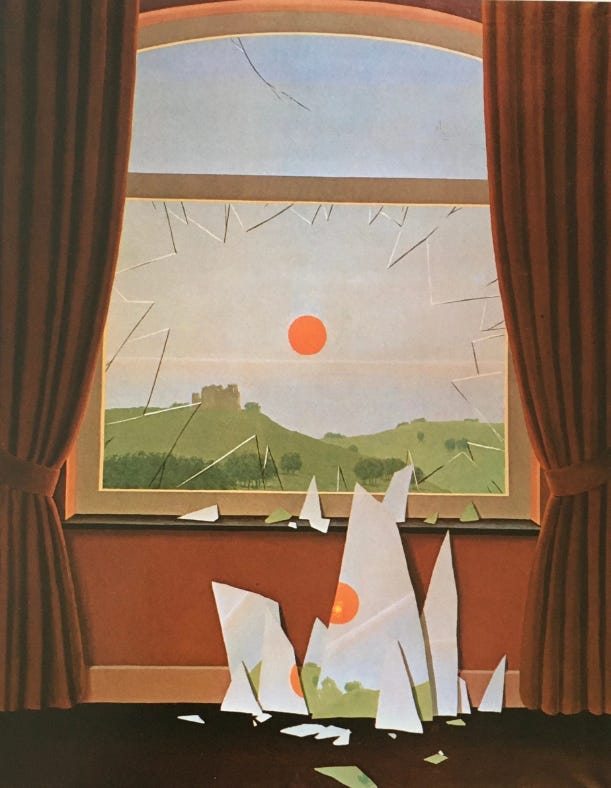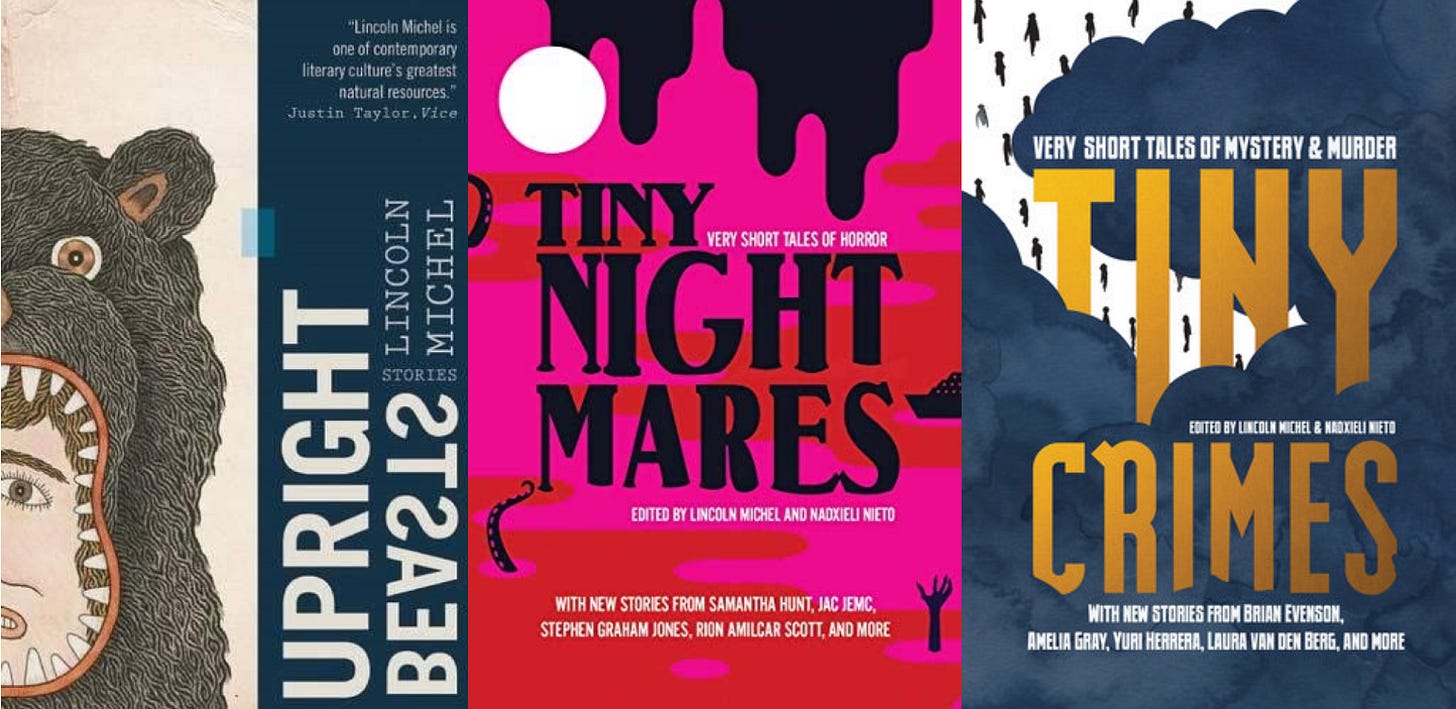The Unnecessary Is the Only Thing Necessary in Art
If you follow film or literary twitter at all, then you’re feed has been filled with people debating if sex scenes are “necessary.” In the way of the internet, this has involved deranged takes such as that the censorious Hays Code was a good thing or that sex scenes might actually be immoral since fictional characters haven’t “consented” to let you the reader watch. There’s plenty to be said about about how our Puritan culture has gotten even more Puritan. Or the attempts to rebrand deeply conservative values as progressive. Or the domination of children’s media in adult consumers. But I’m not going to talk about that here.
What I want to talk about is the pleasures of the “unnecessary” in fiction.
These days, there is a strange focus on what is “necessary” in fiction whether it’s complaining that it’s not necessary to show sex scenes or violence when you can “just imply it” or the perennial dunks on Moby-Dick for having those damn whale chapters. If you press people on these complaints, they explain these things are “unnecessary” or “pointless” because they don’t move the plot forward. Can’t you just cut the whale chapters and get the same story? Couldn’t you skip past depictions of horror / violence / sex / jokes etc. and lose nothing? For these types of consumers—and consumer feels the right word here—the ideal story seems to be a Wikipedia plot summary. The story beats with everything else removed. Efficient and streamlined. Why waste time on atmosphere, thematic exploration, or mere funny or thought provoking sentences? Get to the point!
I imagine there are a lot of roots to this mindset. The tech-driven obsession with optimization and efficiency. The corporate thinking that art is just another widget and the customer is always right. Social media algorithms that reward hot takes and takedowns. And perhaps just the desperation of artists themselves to find easy rules to follow in the hopes to survive in a culture that cares little about supporting the arts. Even in spaces where art is prioritized, like say creative writing workshops, there is a tendency to look for what is “unnecessary” or “pointless” in a work when critiquing. And I get it. It makes sense to look for easy guidelines to judge art by. A way to channel our messy feelings into objective values.
Yet I would like to humbly suggest this thinking is entirely wrong. The unnecessary is most necessary part of art. Art is exactly the place to let your eye linger on what fascinates it. Art isn’t an SEO optimized app or a rubric for overworked teachers to grade five-paragraph essays. Art is exactly the space—perhaps the last space left—where we can indulge, explore, and expand ourselves. If we can’t be weird, extraneous, over-the-top, discursive, and hedonistic in our art, where can we be?
Of course, there are easy technical grounds to point out the point of these allegedly pointless things. Horror is more effective when we linger in the tension. Sex scenes can reveal character dynamics. Digressions from the main narrative establish the narrator’s voice. So on and so forth. I don’t believe art has “a point,” but if it did the point would be closer to the exploration of the themes and ideas than the decontextualized plot beats. Anyway, the entire idea that anything that could be implied instead of depicted serves no purposes is ludicrous. If we cut everything down to the quickest implication, our movies would be mere minutes long and our novels a few pages. And we would experience nothing.
But the unnecessary parts of art are also enjoyable in their own right. Indeed, often my favorite works of arts are the ones that indulge the most in the unnecessary. Last week I reread Italo Calvino’s Invisible Cities, a plotless and essentially character-less novel that is mostly composed of descriptions of 55 fictional cities. Was it necessary to include exactly 55 cities? Is there a point to their ordering? Is anything necessary in a book without plot or characters? Who cares. The novel has captivated readers around the world for decades not because it is necessary but because it is beautiful. It is captivating. It is interesting.
Of course, it might not be interesting to you. If you don’t enjoy an artist’s vision, that is of course well and fine. The problem is not in disliking X or Y in art. It is in arrogantly declaring X or Y to be wrong. Or perhaps it is less arrogance than self-doubt. When someone says X scene was “unnecessary” I think what they really means “I didn’t like it and feel self-conscious about that.” It is often uncomfortable to ask ourselves why something has caused a reaction in us and easier to declare it bad or wrong or unnecessary, especially if we have the mindset that we’re consumers who are paying not to be catered to not challenged or surprised.
Where this attitude worries me the most is when people begin to declare entire realms of human experience “unnecessary.” I frequently see people complain about darkness, unlikeable characters, angry art, political art, and more. Why is it necessary, they ask, to focus on dark things when the world is so dark? What is the point of being angry when we could all use cheering up? Isn’t everything so political already? At some point, we might as well declare all of human experience off limits and call the whole thing off.
And yes, of course some things are just bad. There are poorly done sex scenes and boring digressions and uninteresting chapters. But the best way to experience art is to experience it. Not to spend your time debating if every shot or sentence or lyric is necessary. What is the point of a flower in a painting? What is the necessary number of verses in a song? What is the utility of the archaic torso of Apollo?
If you’re asking what is the point, then you might have missed it entirely.
If you like this newsletter, consider subscribing or checking out my recent science fiction novel The Body Scout that The New York Times called “Timeless and original…a wild ride, sad and funny, surreal and intelligent.”
Other works I’ve written or co-edited include Upright Beasts (my story collection), Tiny Nightmares (an anthology of horror fiction), and Tiny Crimes (an anthology of crime fiction).





Great piece. The obsession with pseudo-professionalism and optimization is anathema to the arts. Our entire society is poisoned by it. Just chill bro, enjoy a book.
Oh, I love this... I need to go back and 'flaneur' my way through Calvino again... thank you for reminding of this on a day when I have to go convince some stooges in suits that I'm the best writer for a bloody streaming algorithm gig.